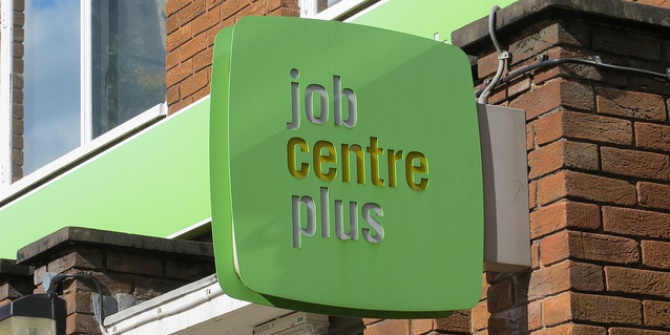 Rising inflation and the freezing and cutting of benefits for those in work mean that households are more squeezed than they were only a year ago – in fact wages need to have risen by 24 per cent for a family to reach the same standard of living as in 2010. Chris Goulden writes that this pressure on family budgets is likely to continue, and may even get worse.
Rising inflation and the freezing and cutting of benefits for those in work mean that households are more squeezed than they were only a year ago – in fact wages need to have risen by 24 per cent for a family to reach the same standard of living as in 2010. Chris Goulden writes that this pressure on family budgets is likely to continue, and may even get worse.
Since 2008, the Joseph Rowntree Foundation has been publishing its annual Minimum Income Standard for the UK, which shows how much money people need for an acceptable standard of living. This standard is based on the items and activities that a cross-section of ordinary members of the public agree are needed to survive and take part in today’s society. Looking at the effects of tax and benefits on the budgets for different family types shows the wage you need to earn in order to have enough.
This year’s update highlights some surprisingly big increases in what people need to earn just to make ends meet. It is clear that many millions of people in the UK do not manage to reach the standard and – for working families with children in particular – it’s getting much harder to do so.
For a family of four, the wage needed has risen to £18,400 per year before tax for each parent (assuming that both of them work full-time, and require childcare). This is a 24 per cent rise on the same figure in April 2010. For a lone parent with one child, the gross wage required has leapt to £18,200 from £12,500 last year. Equally large increases of above 20 per cent can be seen for most other working families who have to pay for childcare.
The cause of this rise can be put down to a combination of the freezing or cutting of in-work benefits, especially Childcare Tax Credits and Child Benefit, alongside a continuing increase in prices. Because of how Tax Credits are tapered (i.e. reduced as your wages rise), families have to earn more to cover even a small reduction in benefits.
These figures certainly demonstrate, then, that the squeeze has already begun. But it is not just low-income families in work and using childcare who are feeling the pinch. If you have to survive on out-of-work benefits, a couple with two children will only get 63 per cent of their minimum needs met and a lone parent with one child only 64 per cent. Pensioners, in contrast, are able to reach their minimum income standard if (and it is a big if) they collect all the benefits to which they are entitled to on top of their state pension. For single adults with no dependants, the amount provided by benefits falls to 44 per cent.
More positively for single people, if they do have a job and earn enough, they do benefit from the rise in the income tax personal allowance. This has offset some of the other pressures on their costs of living.
Projections last December by the Institute for Fiscal Studies, funded by JRF, have already shown that relative poverty is expected to rise considerably over the next three or four years. The analysis provided by the Minimum Income Standard is further evidence of the pressure on budgets, being felt by families on low incomes. This pressure looks set to continue to escalate, and is unlikely to be alleviated by the introduction of Universal Credit in 2013; not least because the Government is considering a new formula for childcare support which would cut entitlements further to save money. And, on top of all this, if earnings do not start to grow again soon, and if prices keep on rising, the future looks bleak indeed.
Please read our comments policy before posting.






